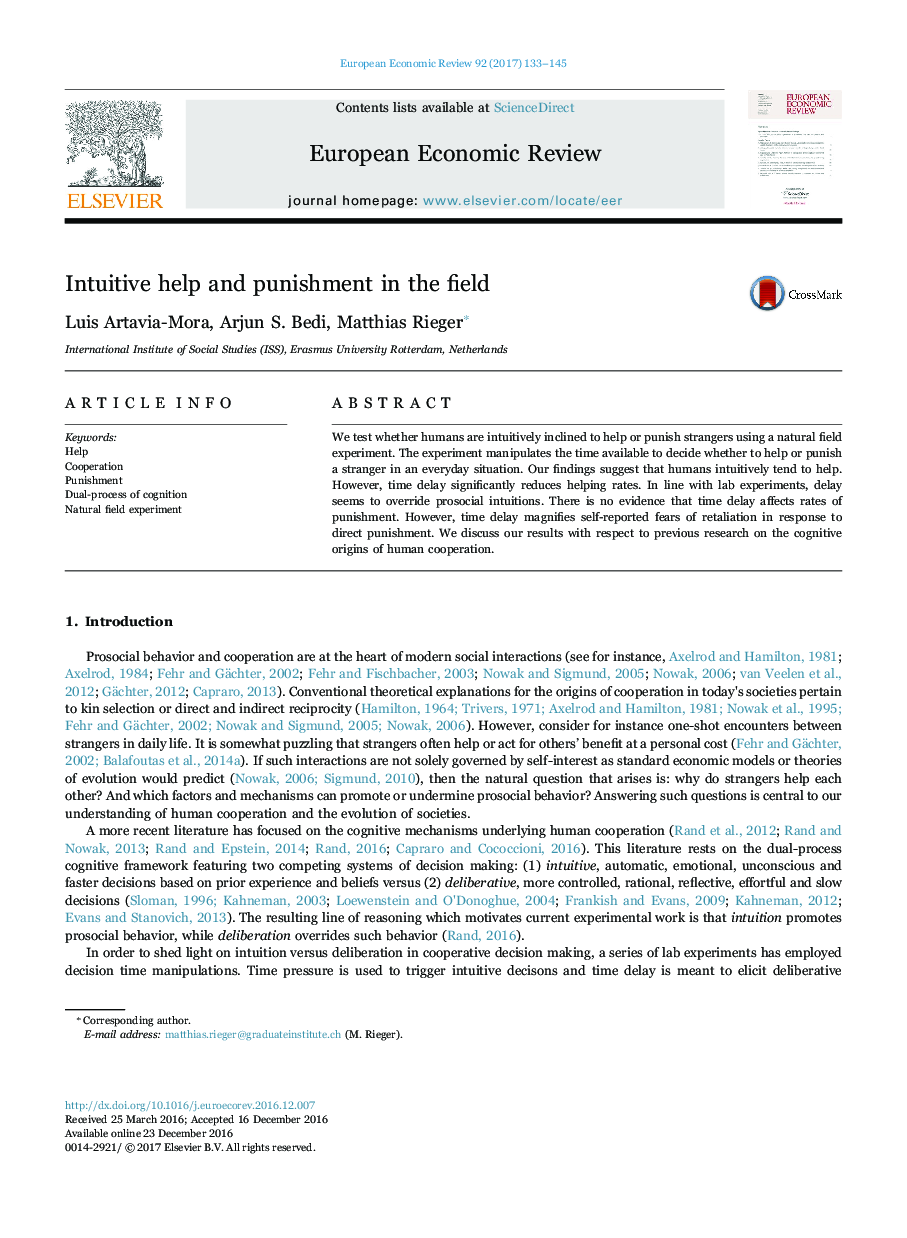| Article ID | Journal | Published Year | Pages | File Type |
|---|---|---|---|---|
| 5066310 | European Economic Review | 2017 | 13 Pages |
Abstract
We test whether humans are intuitively inclined to help or punish strangers using a natural field experiment. The experiment manipulates the time available to decide whether to help or punish a stranger in an everyday situation. Our findings suggest that humans intuitively tend to help. However, time delay significantly reduces helping rates. In line with lab experiments, delay seems to override prosocial intuitions. There is no evidence that time delay affects rates of punishment. However, time delay magnifies self-reported fears of retaliation in response to direct punishment. We discuss our results with respect to previous research on the cognitive origins of human cooperation.
Related Topics
Social Sciences and Humanities
Economics, Econometrics and Finance
Economics and Econometrics
Authors
Luis Artavia-Mora, Arjun S. Bedi, Matthias Rieger,
